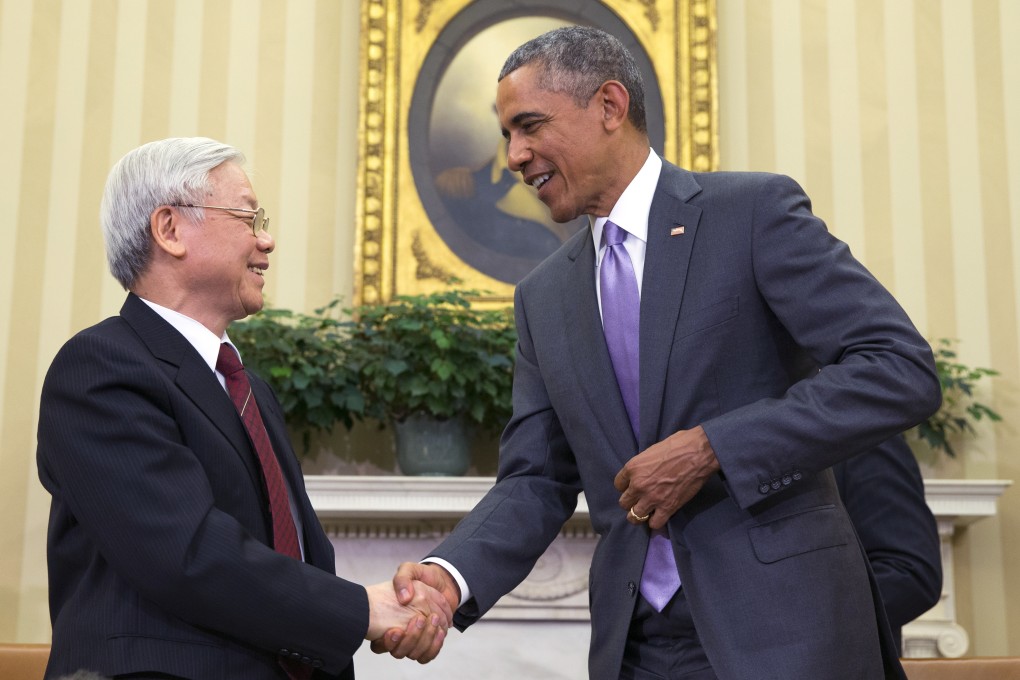Old enemies Vietnam and America draw closer in the face of a common rival - China
Donald Kirk says more than 40 years after the Vietnam war, the visit by the country's communist party secretary to America cements the two countries' improving relations

The visit of modern Vietnam's top leader to the White House conjures up strange memories for millions of Americans who cannot get over the failure of US forces and policies in the Vietnam war. It's hard to blame Vietnam war veterans, and many more Vietnamese Americans who fled Vietnam after the debacle of the defeat of the Saigon regime, if they find it strange to see President Barack Obama receiving the general secretary of the Vietnamese Communist Party.
How times have changed in the four decades since US helicopters were lifting the last Americans from the US embassy and other pick-up points in Saigon as Communist forces were about to "liberate" the city - and the country. Now Vietnam has a foe much closer to home - China, the country that provided most of the arms for the forces from what we once called "North" Vietnam as well as the Viet Cong in "South" Vietnam.
Obama and his guest, Nguyen Phu Trong, were too circumspect to mention China by name, but they left no doubt the US and Vietnam share common cause about its de facto takeover of much of the South China Sea. Might the US soon be sending modern arms to Vietnam - just as bygone US governments armed and equipped the forces of the old "Republic of Vietnam"?
Such a strange reversal is altogether possible. When I was in Saigon in late April for the 40th anniversary of "the fall" of the old Saigon government, I heard Admiral Tran Thanh Minh, deputy chief of Vietnam's small navy, talk frankly about Vietnam's border war with China in 1979 and China's claims on the South China Sea.
"For thousands of years, the Vietnamese people have been fighting invasions from China," he remarked. "We defeated China with endless spirit." Now, he suggested, "the sale of US weapons would be a good way to modernise our weapons and increase our strength".
Obama and Vietnam's President Truong Tan Sang two years ago formed what they called a "comprehensive partnership" - a term that comes close to sounding like a treaty. Truong Tan Sang, however, ranks second in the hierarchy to the party leader; Trong's visit confirms the partnership's durability and significance.